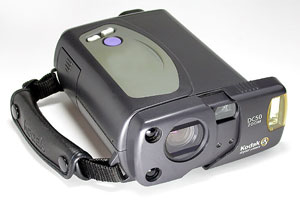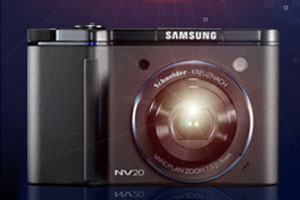Turning the Issues Upside Down...
By Gerd Waloszek
To overview of UI Design Thoughts
In school, I learned that Karl Marx had claimed that he had put the philosopher Hegel from his head onto his feet, or better, he had turned Hegel upside down (in German: "das Unterste zuoberst gekehrt"; others claim that the philosopher Ludwig Feuerbach did that first). In this article, I will also turn a long-standing issue upside down, though not a philosophical one (you never know, though...): the technology-usability issue.

Figure 1: Monument for Marx and Hegel in China
The Ever-Lasting Playground
When in discussions about the status of development projects the focus shifts towards the effort invested in usability activities, often the following argument is put forth: The technical issues had to be solved first, before there was any time for dealing with usability issues. Regrettably, however, there was no time left for usability actions, because the release schedule was so tight. OK, you think, let's meet again for the next release – but then you will hear the very same excuse again. Over time, I found out that there seems never to be any time left for usability activities, because technology changes so fast. Thus, development rushes from one technological challenge to the next, whereas nothing happens with respect to improvements of the user interface. It looks as if the developers live in an ever-lasting playground where they attack one technological challenge after the other...
But Users Do not Care...
From a user's point of view, however, technology is only of marginal interest. Users want to achieve their goals and perform their task easily and efficiently, regardless of the technology used. Often they even don't even know which technology is involved – they simply don't care.
Now Turning Upside Down...
Whilst one new technology replaces another in rapid sequence, there has not so much changed in the world of business – apart from the new styles of doing business that the Web has made possible. User habits change even more slowly than technology and business. This contrast provides enough room for offering a new idea:
- Why not turn the technology-usability issue "upside down" by solving the usability issues first?
- As soon as we have solved these issues, we can adopt the best (or newest) technology at hand – and are possibly far ahead of the competition (at least with respect to user experience).
Any Problems?
So, what's wrong with this idea? The only issue that I can see is that we are living in a technology-centric world. We all long for the newest technology and are addicted to the lure "newer is better." This is true for all aspects of consumerism, be it cars, cameras, computers, or software applications. However, deep in our hearts, we are well aware of the fact that the lure "newer is better" is not true. Take digital cameras as an example: Manufacturers cram more and more pixels into the same sensor size, leading to increasing noise in the images, which constantly decreases image quality. But do we refuse to buy the new cams? Of course not, because the new cams have so many other innovative features, too. And of course, we want to demonstrate that we can keep up with the pace of technology.
 |
 |
|
| The Kodak DC50 from 1996; it "crammed" 756*504 pixels into its CCD sensor (0.38 MP) |
The Samsung NV20 from 2007 has a 12.1 million pixels sensor |
Figure 2: Two examples demonstrating the evolution of digital cameras
With respect to usability or user experience, we know well that technology is not a key issue – user and usage data and the correct use cases and user roles are. Usable applications can be coded with character-based user interfaces as well, but we don't like them any more: We all prefer modern user interfaces boasting of transparency, smooth animations, and many more gimmicks.
Conclusion
Who was right, Marx or Hegel? Probably, both were right in some respects and wrong in others. I am not a philosopher, so I will not make any comments on this matter... Who is right with respect to the technology-usability issue? Certainly, we usability people are, though not completely. But will we be able to convince the developer community and, even tougher, the business departments in our companies?
Why not completely? Because nobody can ship a product, as long as the technology issues have not been settled...
Originally Published: 01/29/2008 - Last Revision: 01/31/2009
Gerd Waloszek |
made by |
